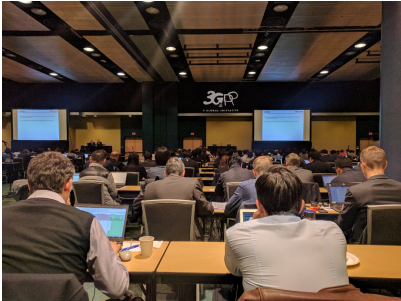Stefan Parkvall, Principal Investigator of Ericsson Research Institute, recently shared his understanding of 5G standardization work and his experience in participating in the 3GPP standardization conference on Ericsson's official blog. The following is the full text of the blog:
Why can mobile communication technology develop at an alarming rate? The answer is standardization.
Just like 3G and 4G, the standardization of 5G is equally important.
Based on ease of use, people are beginning to use connected services in cars and trust autopilot. Smart technology is widely used in cities where citizens can easily build and use smart services. The same is true in other industries, and if communication technologies are not easy to use, they will not be seen as the main driver of efficiency and digital transformation.
If 5G technology is easy to use, deploy, and scale, everyone can use 5G technology, and 5G can serve everyone. Achieving such goals requires a high degree of cooperation within the industry, and Ericsson has been working on this for many years.
The first edition of the 5G new air interface standard is released soon
5G's wireless access capabilities go far beyond previous generations of mobile communications technologies, and these capabilities will be realized through the evolution of the new air interface (NR) and existing LTE standards. Mobile broadband will continue to be an important service for 5G and will continue to drive capacity and data rates. However, the 5G goal will be broader and will surpass the traditional use cases of previous generations of mobile communication technologies to achieve ultra-reliable low-latency communication (URLLC). 5G delivers unprecedented reliability and ultra-low latency for applications such as critical industry applications, factory automation and intelligent transportation systems.
The standardization of the 5G new air interface has just been completed, and the first version of the complete standard will be approved in June. Compared with the mid-term version of the non-independent networking (NSA) new air interface released in December last year (this version is for commercial deployment earlier this year), the June version of the independent networking (SA) operation will not depend on LTE mobility and First visit.
As with previous generations, 5G standardization is led by the 3rd Generation Partnership Program, or the more widely known 3GPP. The 3GPP R15 standard work began in March 2017 and ended in June 2018. The first complete specification of the 5G new air interface will be released.
The 3GPP standardization work is an open, contribution-driven process that brings together (telecom) companies around the world to establish a 5G international standard. Anyone can join the 3GPP to promote the development of 5G standards, which will be released to the public and even open to non-members. In 2012, Ericsson participated in the drafting of the first draft of the 5G standard, detailing its basic principles, objectives, requirements and scope. These 5G basic principles apply to all major mobile operators, and now when you mention 5G, these principles are naturally thought of.
Standardization is a highly innovative and complex process with a huge workload. During a meeting, the number of documents sent to only one of the working groups was roughly 2.5 times that of Shakespeare's life. In the process of standardization, the efforts of the members can not be ignored. I have participated in more than 80 RAN1 meetings in the past 15 years, each meeting lasting 5 days.

Undoubtedly, in the process of defining the 5G new air interface, the parties have carried out a lot of work and put a lot of energy. Because the process is open, relevant companies can cross-check each other's contributions and suggestions to ensure that the standardization work can be carried out smoothly. Ericsson is one of the most important contributors to the process.
The decision of 3GPP is based on the principle of consensus. The sheer size of 3GPP poses certain challenges for consensus, but over the years 3GPP has consistently adhered to this principle, setting standards for all members and ensuring their commitment. 3GPP has developed a universally accepted unified standard, opening up a significant market for mass terminals and equipment.
Regardless of technology, it is interesting and beneficial to work in an open, international environment such as 3GPP. Different technical solutions are of course the core of the discussion, but given the diverse international background of the delegates, it is particularly important to eliminate mutual respect and cooperation in cultural differences in such an environment.
Wuxi Doton Power , http://www.dotonpower.com
